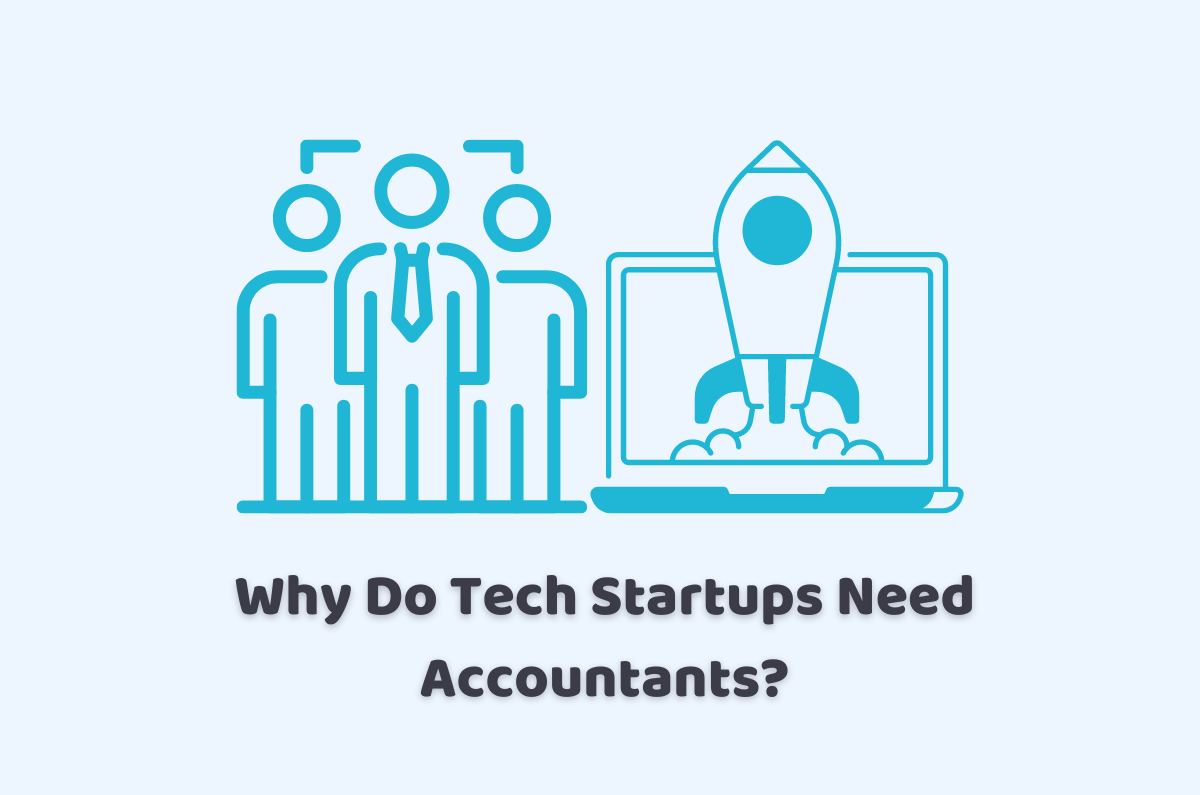
17/01/2024Accountants , Accounting , Accounting Issues , accounting software
Whether you’re just starting a tech startup or are already established, managing finances is a crucial aspect of your business success and you must be wondering about why do tech startups need accountants. As a tech startup, managing finances can be a daunting task, as you deal with issues such as budgeting, cash flow management, and tax compliance. That’s why having the expertise of an accountant can be invaluable in helping you navigate these challenges and ensure the financial health and stability of your business.
This guide aims to provide a comprehensive overview of how accountants can help tech startups in the UK. We will discuss how accountants can provide expertise in financial management, budgeting, and tax compliance. We will also discuss how accountants can help tech startups navigate complex tax regulations, keep their finances organised, and bring expertise to their operations. By understanding how accountants can help tech startups in the UK, you can make informed decisions about your financial management and ensure that your business has the right support to succeed.
Reach out to our intelligent and clever-minded guys to get the answer to your queries in the UK, we will get to your answers quickly.
Why Do Tech Startups Need Accountants?
In the UK, most tech startups require accountants for a variety of reasons. Accountants play a vital role in ensuring that the financial records of these companies are accurate and transparent, which is crucial for attracting investors and obtaining funding. Accountants can provide expert advice on financial management, budgeting, and tax compliance, which are essential for the success of any business, especially in the tech sector, where companies are often operating at a loss in their early stages and may face significant cash flow challenges.
They are crucial for ensuring that tech startups are in compliance with accounting laws and regulations, which can be complex and require a deep understanding of financial reporting standards in the UK. Accountants can help tech startups keep track of their financial transactions, ensure that they are accurately represented in their financial statements, and help them file their taxes on time.
Why Do Tech Startups Need Accountants to Managing Financial Risks?
Managing financial risks is a critical aspect of budgeting and financial management for tech startups in the UK. Accountants play a vital role in this process by providing a comprehensive understanding of the financial risks that could impact the company’s success and recommending appropriate strategies to mitigate these risks.
Accountants assist tech startups in identifying and assessing various financial risks, including currency risk, interest rate risk, credit risk, liquidity risk, and operational risk. They can help tech startups establish risk management policies, develop risk management frameworks, and implement risk management systems to mitigate these risks. These measures can include monitoring and analysing financial transactions, setting up risk alerts, creating contingency plans, and establishing risk thresholds.
Getting Funding and Attracting Investors
Attracting investors and obtaining funding is a crucial aspect of the financial management process for tech startups in the UK. Accountants play a vital role in this process by providing expert advice on financial management, budgeting, and tax compliance, which are essential for these companies to attract investors and obtain funding.
Also, they help tech startups in preparing comprehensive financial statements, which can be essential for investors to make informed investment decisions. They can help tech startups prepare quarterly or yearly financial statements, which can provide a detailed overview of their financial performance and position. They can also help tech startups prepare budgets, forecasts, and projections, which can be essential tools for investors to understand the company’s financial situation and plan for future growth.
Strategic Financial Planning
Strategic financial planning is a critical aspect of the financial management process for tech startups in the UK. Accountants play a vital role in this process by providing expert advice on financial management, budgeting, and tax compliance, which are essential for these companies to develop effective financial strategies and ensure their financial stability.
This can be essential for investors to understand the company’s financial objectives and future growth strategies. They can help tech startups establish financial goals, define key performance indicators, develop budgets and forecasting models, and establish financial deadlines and milestones. They can also help tech startups develop contingency plans to address potential financial risks and ensure that the company can effectively manage its financial resources.
Navigating Complex Tax Regulations
Navigating complex tax regulations is a critical aspect of financial management for tech startups in the UK. Accountants play a vital role in this process by providing expert advice on financial management, budgeting, and tax compliance, which are essential for these companies to effectively manage their taxes and avoid potential tax risks.
Accountants can assist tech startups in understanding and complying with various tax laws and regulations, including income tax, VAT, capital gains tax, payroll tax, and corporate tax. They can help tech startups understand the tax implications of their financial transactions, develop tax planning strategies to reduce their tax liabilities, and ensure compliance with tax laws and regulations.
Accountants can also guide you on the tax implications of different funding sources, including venture capital, angel investing, and crowdfunding platforms. They can help tech startups understand the tax implications of different forms of funding and ensure that they are prepared to handle the associated tax requirements.
Bring Expertise
Bringing expertise to tech startups in the UK is a critical aspect of the financial management process. Accountants play a vital role in this process by providing expert advice on financial management, budgeting, and tax compliance, which are essential for these companies to effectively manage their finances and ensure their financial stability.
They can also guide managing the company’s taxes and ensure compliance with tax laws and regulations, which can be critical for the company’s financial stability. Accountants can also assist tech startups in understanding the various funding options available to them, including venture capital, angel investing, and crowdfunding platforms. They can provide guidance on the financial and legal implications of different funding sources, help the company prepare investor pitches, and facilitate the process of attracting investors.
Keeping Your Finances Organised
Keeping finances organised is a critical aspect of financial management for tech startups in the UK. Accountants play a vital role in this process by providing expert advice on financial management, budgeting, and tax compliance, which are essential for these companies to effectively manage their finances.
This will lead to developing budgeting models, financial forecasts, and cash flow projections, to accurately estimate revenue, expenses, and cash flow. They can also help the company set financial targets and goals, and provide guidance on tracking and monitoring the company’s progress.
The Bottom Line
In conclusion, why do tech startups need accountants, accountants play a vital role in the financial management process for tech startups in the UK. Through their expertise in financial management, budgeting, and tax compliance, accountants can provide tech startups with essential guidance on critical financial issues, including budgeting, cash flow management, tax planning and compliance, and strategic planning. These services are essential for tech startups to effectively manage their finances, ensure their financial stability, and achieve their financial objectives.
With the help of accountants, tech startups can develop comprehensive financial plans, ensure accurate tax compliance, and effectively manage their cash flow. Accountants can also assist tech startups in bringing expertise to their operations, navigating complex tax regulations, and keeping their finances organised. By providing these services, accountants can help tech startups in the UK to successfully compete in the highly competitive high-tech marketplace and achieve their financial objectives.
Talk to our best accountants and bookkeepers in the UK at CruseBurke. You will get instant help about how to run payroll in the UK whether you are running a small or large business.
Disclaimer: The general information provided in this blog about why do tech startups need accountants in the UK includes text and graphics. It does not intend to disregard any of the professional advice in the future as well.


